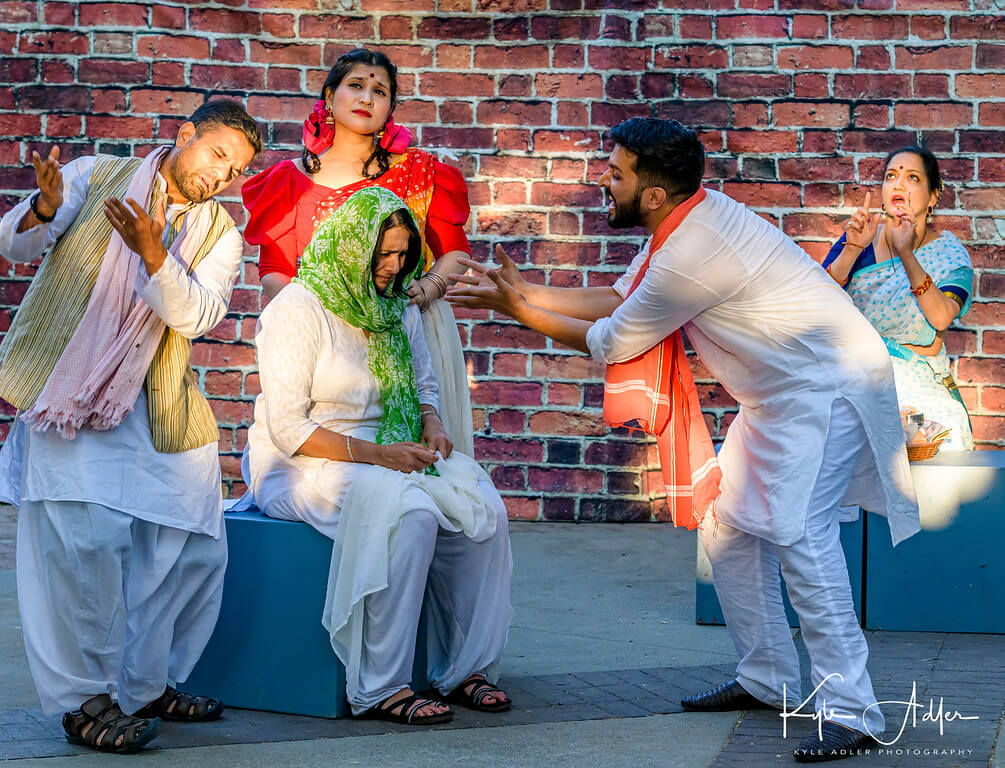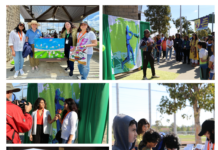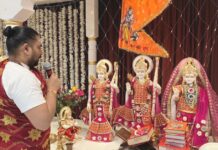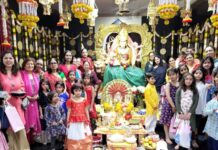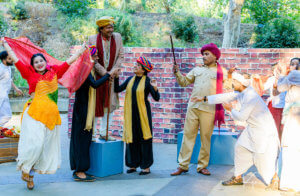 Archana Asthana
Archana Asthana
Naatak returned with a bang to live theater, staging “Ek Tha Gadha urf Aladad Khan” in the amphitheater at Kelly Park over the past few weekends. The open -air ambience with minimalist prop support, sans lighting or microphone, accentuated the inherent style of the nukkad naatak (street theater) appropriate for this political satire. It highlighted the winsome acting, perfectly complemented with live singing and colorful costumes to bring to life the story of a conceited nawab, so caught up in establishing his fame by any means, however ridiculous or dangerous the schemes might be.
This presentation, written by Sharad Joshi and directed by Anitha Dixit, who used the natural props to her advantage, setting up a believable bazaar scene, where all the action occurs. The crew ably supported all facets of the play from emoting the wit and humor written into every dialogue, boisterous singing and spirited dancing which left the theater goers roaring throughout.
The dhoban (washerwoman), played mournfully by Anjali Kirloskar loudly laments the death of her gadha (donkey) Aladad in the bazaar (marketplace), which is the meeting place for all and sundry. It is also a place frequented by the nawab(Harish Agastyay) and his coterie of partymen (chintak or thought leaders), enacted by a winsome trio of Tannishtha Mukherjee, Jai Jhala and Rohit Dube, craftily vying to win favors by maximizing the nawab’s popularity through preposterous proposals.
Upon learning of Aladad Khan’s death, and without knowing the true identity of the deceased, the nawab declares, in a grand gesture, to be part of the funeral procession, in order to garner praise from the people. Through his grandiose declarations, Aladad Khan morphs into a larger than life figure; having roads and public spaces named after him, and a holiday being declared in his honor.
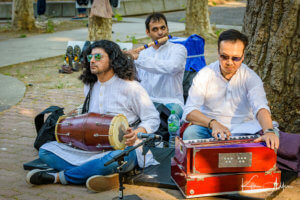 The lovable cast of characters at the bazaar include Ramkali (Roshni Dutta) whose antics with her kotwal (police inspector) husband (Natraj) steal the show with singing, dancing and total nautanki (drama) in every scene. The tailor, paanwali (betel leave seller), and assorted passers-by contribute to a vivid narrative of the fate of Aladad.
The lovable cast of characters at the bazaar include Ramkali (Roshni Dutta) whose antics with her kotwal (police inspector) husband (Natraj) steal the show with singing, dancing and total nautanki (drama) in every scene. The tailor, paanwali (betel leave seller), and assorted passers-by contribute to a vivid narrative of the fate of Aladad.
The nawab’s hilarious cronies continue the satire until the true identity of Aladad is revealed to them and shared with their leader, who is now set up to be ridiculed, and demands the kotwaal’s life for misleading him. The comedy of errors continues unabated until a law-abiding citizen shows up, who has the name…Aladad Khan.
A perfect scheme to preserve the farce and retain the nawab’s dignity and kotwal’s life can only be executed with a sacrifice, to allow for the situation to proceed as cooked up by them.
The play flows seamlessly and seems a natural fit in the alfresco setting. Enhanced by the beauty of the green foliage, the natural sounds of the leaves rustling in the gentle breeze and the actors appearing as natural extensions of the audience, without demarcation by a formal stage and wings.

